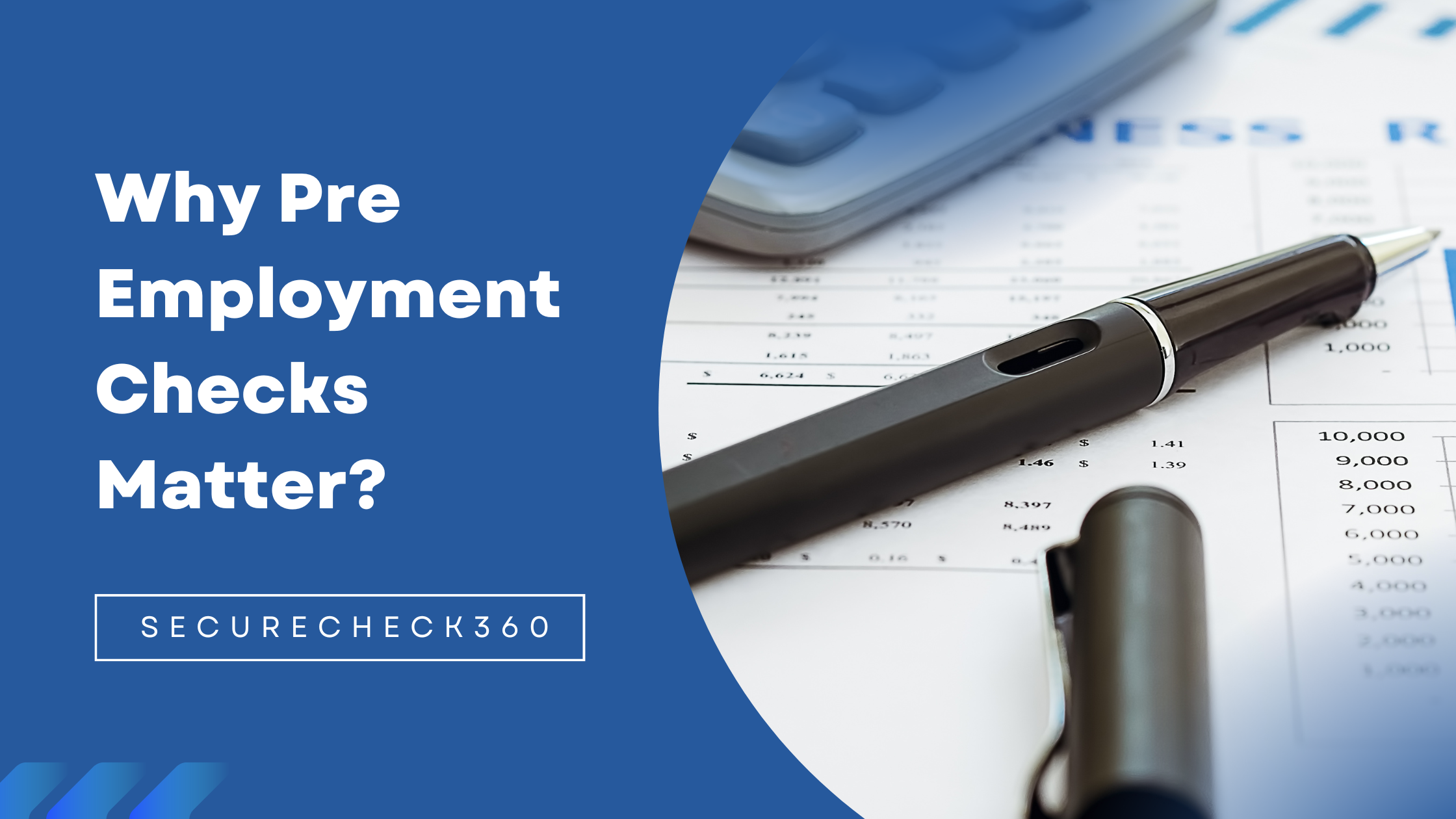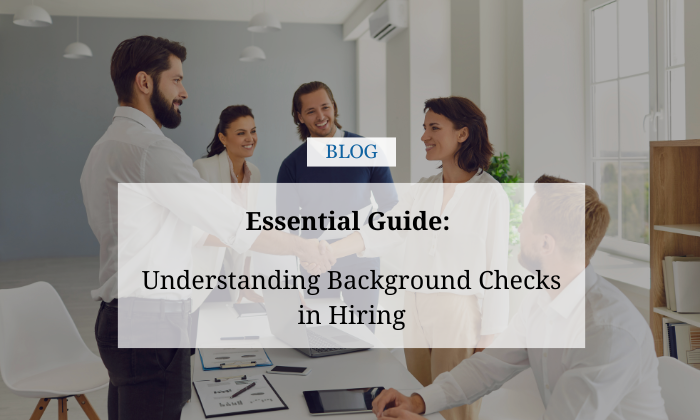
Why Pre-Employment Checks Matter?
Share Now!!

In today’s competitive job market, employers are looking for ways to ensure they hire the best possible candidate for the job. One of the ways to achieve this is through pre-employment checks. Pre-employment checks refer to the process of conducting background checks on potential employees before offering them a job. This article explores why pre-employment checks matter and the benefits they offer both employers and employees.
What Are Pre-Employment Checks?
Pre-employment checks are conducted by employers to gather information about potential employees before making a job offer. These checks can include criminal background checks, employment verification, reference checks, credit checks, and drug testing. The type of check conducted will depend on the nature of the job and the industry in which it operates.
Criminal Background Checks
Criminal background checks are the most common type of pre-employment check. Employers use these checks to verify whether potential employees have a criminal record. This information can be vital in jobs that require trust, responsibility, or involve handling sensitive data.
Employment Verification
Employment verification involves checking the work history of potential employees to ensure that their employment history is accurate. Employers can verify past employment dates, job titles, and duties performed. This information can be essential in verifying the credibility and qualifications of a potential employee.
Reference Checks
Reference checks involve contacting the previous employers or personal references of the candidate to gain insight into their work habits, character, and reliability. This information can be crucial in verifying the potential employee’s suitability for the job.
Credit Checks
Credit checks are often conducted for jobs that involve handling financial information or require a high level of financial responsibility. Employers can use credit checks to evaluate an applicant’s financial history, including any outstanding debts or financial issues.
Drug Testing
Drug testing is typically conducted for jobs that involve operating heavy machinery or that require clear judgment and coordination. It can also be conducted in industries where safety is paramount, such as healthcare or transportation.
Why Pre-Employment Checks Matter
Pre-employment checks are essential for several reasons. They help employers make informed decisions about potential employees and minimize the risk of hiring unsuitable candidates. The following are some of the benefits of pre-employment checks:
Avoiding Legal Risks
Pre-employment checks can help employers avoid legal risks associated with negligent hiring. Negligent hiring occurs when an employer hires an employee who then commits a crime or causes harm to others. By conducting pre-employment checks, employers can verify the suitability of potential employees, and reduce the risk of legal action being taken against them.
Protecting Company Assets
Pre-employment checks can help protect company assets, such as sensitive data or company property. For example, a criminal background check can reveal whether a potential employee has a history of theft or fraud, making them unsuitable for jobs that require trust and responsibility.
Improving Employee Retention
Pre-employment checks can also help improve employee retention. By hiring the best possible candidate for the job, employers can ensure that the employee is well-suited to the job and is likely to stay with the company for the long term. This can help reduce the cost and time associated with recruiting and training new employees.
Enhancing Workplace Safety
Pre-employment checks can help enhance workplace safety by ensuring that potential employees are physically and mentally capable of performing the job. For example, drug testing can reveal whether a potential employee has a drug or alcohol addiction that could affect their ability to work safely.
Building Trust and Credibility
Pre-employment checks can help build trust and credibility between the employer and the employee. By conducting thorough background checks, employers can demonstrate their commitment to hiring the best possible candidate for the job, and employees can feel confident in the knowledge that they are working for a reputable and trustworthy company.
Potential Drawbacks of Pre-Employment Checks
While pre-employment checks offer many benefits, there are also potential drawbacks to consider. Some of these drawbacks include:
Infringement on Privacy
Pre-employment checks can infringe on the privacy of potential employees. It is essential for employers to ensure that the checks they conduct are relevant to the job and do not violate any laws or regulations.
Delay in Hiring
Pre-employment checks can also cause delays in the hiring process. Conducting thorough background checks can take time, which can be frustrating for both the employer and the potential employee.
Inaccuracy of Information
Pre-employment checks can also be inaccurate. Information obtained from criminal background checks, credit checks, or employment verification checks may not be up to date or may contain errors.
Conclusion
Pre-employment checks can help to build trust and credibility within the organization. When employers conduct thorough background checks and hire only the best possible candidates for the job, they are sending a clear message that they are committed to hiring individuals who are trustworthy, reliable, and capable. This can help to build trust and credibility with employees, customers, and other stakeholders, and can help to create a more positive and successful company culture.
However, it is important to ensure that pre-employment checks are relevant to the job and do not infringe on the privacy of potential employees. Employers should only conduct checks that are necessary for the job and should ensure that they are complying with all relevant laws and regulations. By conducting thorough and appropriate pre-employment checks, employers can ensure that they hire the best possible candidate for the job, reducing the risk of hiring unsuitable candidates and improving the overall success of the company.
Who We Are?
We Are A National & Global Provider Of Pre-employment Background Checks.





